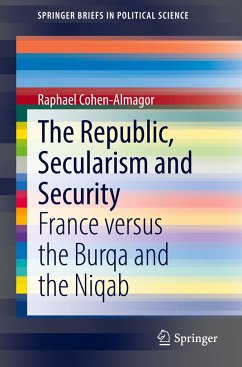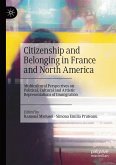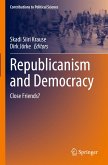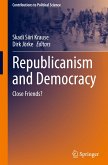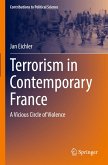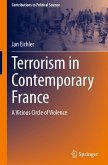This book analyses French cultural policies in the face of what the French government perceives as a challenge to its Republican secular raison d'être. It makes general arguments about France's changing identity and specific arguments about the burqa and niqab ban. The book further explains how French history shaped the ideology of secularism and of public civil religion, and how colonial legacy, immigration, fear of terrorism, and security needs have led France to adopt the trinity of indivisibilité, sécurité, laïcité while paying homage to the traditional trinity of liberté, égalité, fraternité.
The book argues that while this motto of the French Revolution is still symbolically and politically important, its practical significance as it has been translated to policy implementation has been eroded. It shows how the emergence of the new trinity at the expense of the old one is evident when analyzing the debates concerning cultural policies in France in the face of the Islamic garb, the burqa, and the niqab, which are perceived as a challenge to France's national secular raison d'être. Subsequently, the book raises various important questions, such as: Is the burqa and niqab ban socially just? Does it reasonably balance the preservation of societal values and freedom of conscience? What are the true motives behind the ban? Has the discourse changed in the age of COVID-19, when all people are required to wear a mask in the public space?
Therefore, this book is a must-read for students, scholars, and researchers of political science, as well as a general audience interested in a better understanding of French politics, elections, cultural policy, secularism, and identity.
The book argues that while this motto of the French Revolution is still symbolically and politically important, its practical significance as it has been translated to policy implementation has been eroded. It shows how the emergence of the new trinity at the expense of the old one is evident when analyzing the debates concerning cultural policies in France in the face of the Islamic garb, the burqa, and the niqab, which are perceived as a challenge to France's national secular raison d'être. Subsequently, the book raises various important questions, such as: Is the burqa and niqab ban socially just? Does it reasonably balance the preservation of societal values and freedom of conscience? What are the true motives behind the ban? Has the discourse changed in the age of COVID-19, when all people are required to wear a mask in the public space?
Therefore, this book is a must-read for students, scholars, and researchers of political science, as well as a general audience interested in a better understanding of French politics, elections, cultural policy, secularism, and identity.

